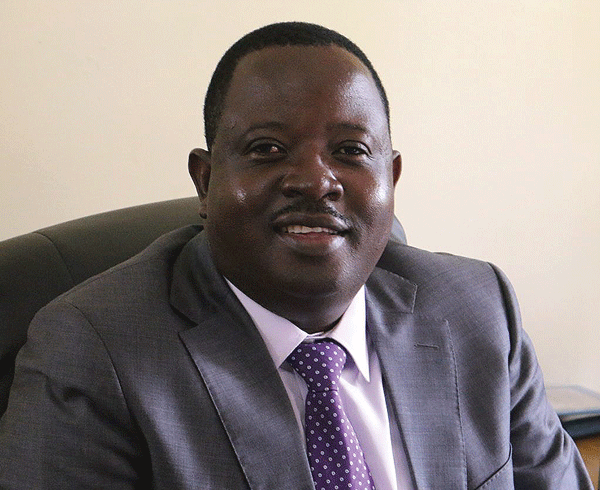
BY VENERANDA LANGA
ZIMBABWE is among top eight countries in Africa that are on the world’s top 30 nations heavily burdened by HIV and the multi-drug resistant tuberculosis (MDR-TB).
These countries account for 85% to 89% of TB cases globally. Zimbabwe is also still grappling with the impact of COVID-19 which is also affecting TB programming.
The country has an estimated 21 000 new cases of TB each year, and 3,1% of these are drug-resistant.
About 6 300 Zimbabweans die of TB each year despite it being a preventable and curable disease. The Global TB report which was released last week stated that TB treatment coverage was 72% in 2019, which is a decrease from 83% in 2018.
Community Working Group on Health executive director Itai Rusike (IR) told NewsDay (ND)’s Veneranda Langa that TB programmes should be funded from the fiscus as donor funding was not sustainable. The following are the excerpts of the interview.
ND: Last week, Zimbabwe joined the world in commemorating World TB Day, can you tell us the significance of the day.
IR: It was celebrated under the theme The Clock is ticking, It’s Time to Rise up Now to End TB. On this day, we appreciate efforts made towards ending TB, a killer disease and highlight further action that is needed to defeat this life-threatening disease. This year, we mark the day amid the COVID-19 pandemic, which in 12 months has eliminated 12 years of progress in the global fight against TB.
- Chamisa under fire over US$120K donation
- Mavhunga puts DeMbare into Chibuku quarterfinals
- Pension funds bet on Cabora Bassa oilfields
- Councils defy govt fire tender directive
Keep Reading
TB is an infectious disease which mainly affects the lungs, but other parts such as the brain, heart and bones can be affected. It is spread from person to person through coughing, sneezing or spitting.
In Zimbabwe, screening, diagnosis and treatment for TB is provided free of charge at all public health institutions.
ND: So how has COVID-19 affected TB programming?
IR: The response to the COVID-19 pushed aside TB outreach and services, resulting in a 20% drop in diagnosis and treatment worldwide.
TB remains a major obstacle to attaining the sustainable development goal of health, development and prosperity for all in Zimbabwe. COVID-19 has disrupted TB programmes just like other essential health services as the government has been focusing on the COVID-19 response and also channelling most of the financial and human resources to fighting the pandemic.
The GeneXpert machines used for the TB diagnostics have been taken over for COVID-19 testing, thereby affecting the TB testing activities.
ND: How has TB affected Zimbabweans and what are the opportunities we have as a country to combat it?
IR: Our country has an estimated 21 000 new cases of TB each year and 3,1% of these are drug-resistant.
About 6 300 Zimbabweans die of TB each year despite it being preventable and curable.
Funding for research on TB in Zimbabwe is minimal and new tools to prevent, diagnose, and treat TB are urgently required. There is an opportunity to leverage COVID-19 infrastructure and investments to improve the TB response, integrate TB and COVID-19 testing and tracing, and strengthen efforts to overcome the barriers that people continue to face when accessing TB services.
ND: How should TB programmes be funded, should there be a budgetary allocation for it?
IR: Zimbabwe cannot continue to rely on external funding such as the Global Fund for its TB programmes as it is not sustainable. We need to increase domestic financing from our own national resources including the national budget.
The theme for this year’s World TB Day 2021 emphasised that the clock is ticking and it is time for the government to fulfil commitments towards defeating TB. The government should engage communities in planning and implementing strong, integrated TB and COVID-19 mitigation and response measures. In addition, there is need to increase financing for TB prevention and care, innovations in care delivery, and research and development, including for new TB vaccines to prevent the development of drug-resistant TB. It is time to take action to get back on track and accelerate collective efforts to fulfil the 2022 United Nations targets on TB to defeat the disease and save lives.
ND: With food deficit currently affecting the country, is this not going to affect TB programming?
IR: Food security and nutrition issues negatively affect people taking TB medication as they need to eat before taking their medication, hence the risk of some people defaulting with the consequences of developing drug-resistant TB or even death.
The commitments made and targets set by heads of State and other leaders to accelerate action to end TB must be kept even in COVID-19 crisis and should be backed by adequate investments. This will help to protect lives of thousands of people suffering from TB and to prevent further loss of gains made in the fight against TB. Not one more person should die from TB because it is a preventable and treatable disease.
ND: What are the outcomes on TB and COVID-19 that came out during the discussions on World TB Day this year?
IR: The CWGH notes that the COVID-19 pandemic has eliminated 12 years of progress in the global fight against tuberculosis in just one year.
The response to the COVID-19 pandemic pushed aside TB outreach and services, resulting in a 20% drop in diagnosis and treatment worldwide. At the same time, funding for research on TB and COVID-19 in Zimbabwe is minimal and there is now need for finance and new tools to prevent, diagnose, and to treat TB.
However, there is an opportunity to leverage on COVID-19 infrastructure and investments to improve the TB response, integrate TB and COVID-19 testing and tracing, and strengthen efforts to overcome the barriers that people continue to face when accessing TB services, and treatment.
- Follow Veneranda on Twitter @LangaVeneranda











